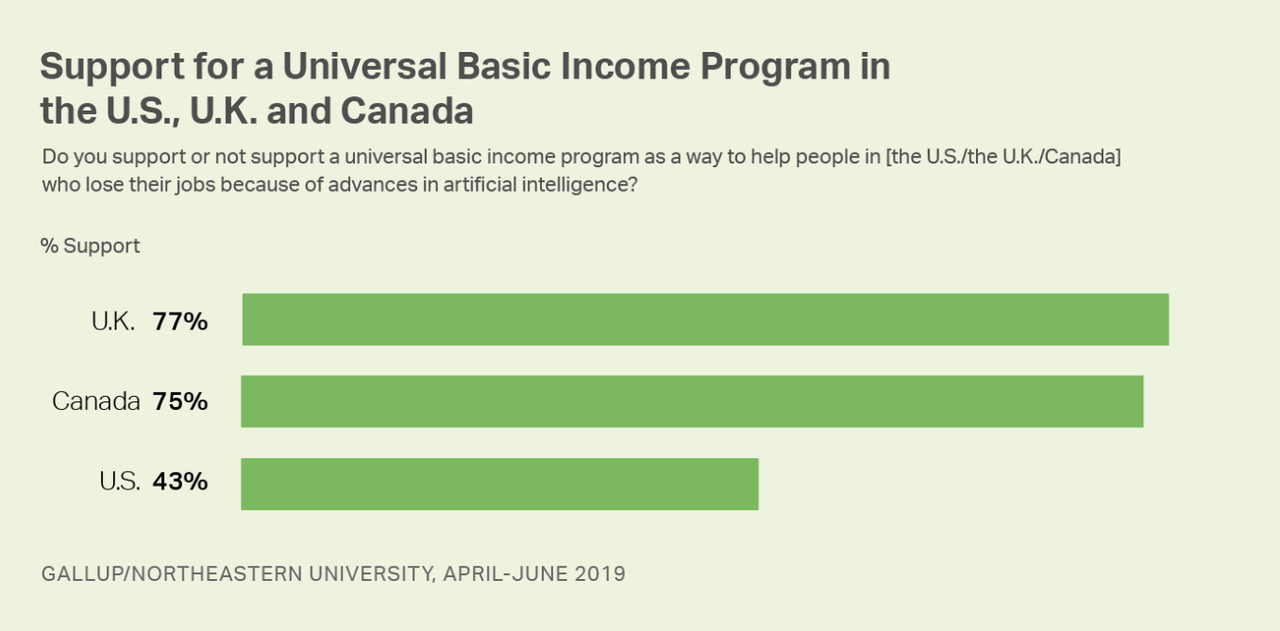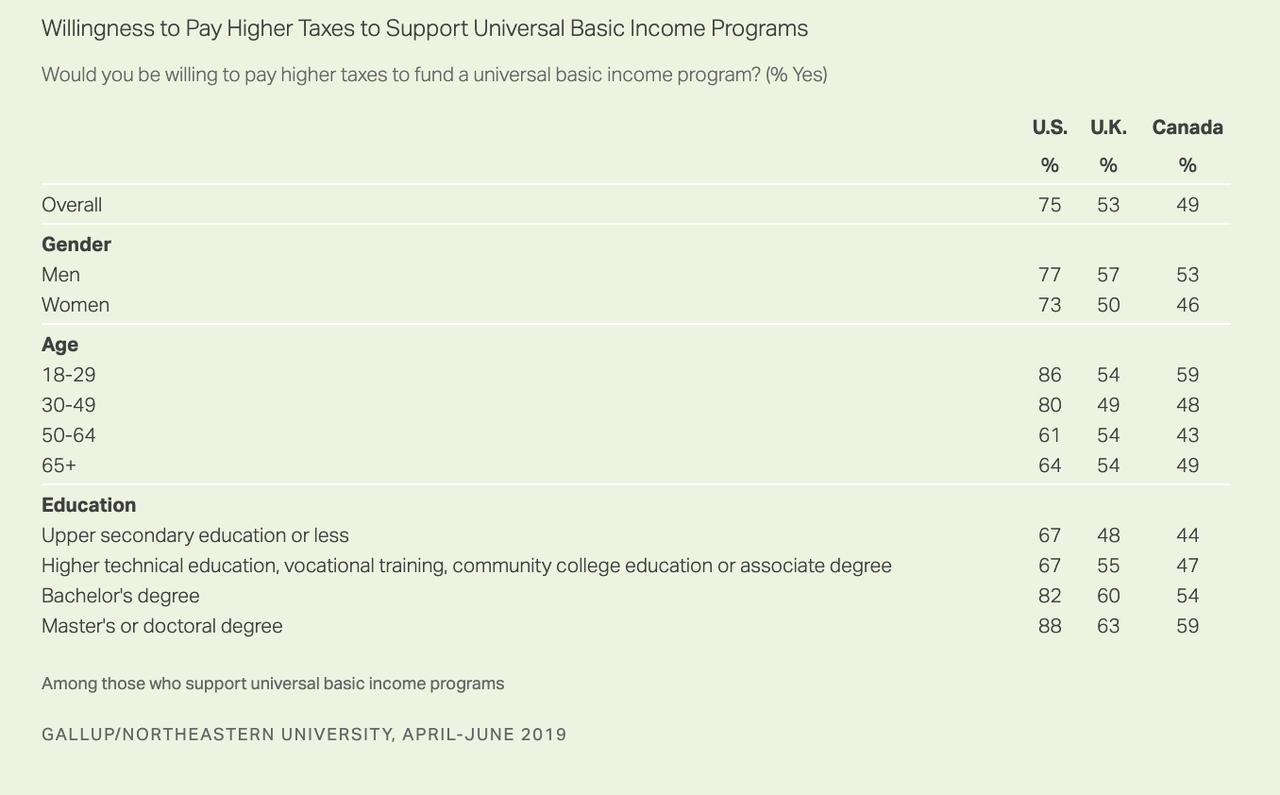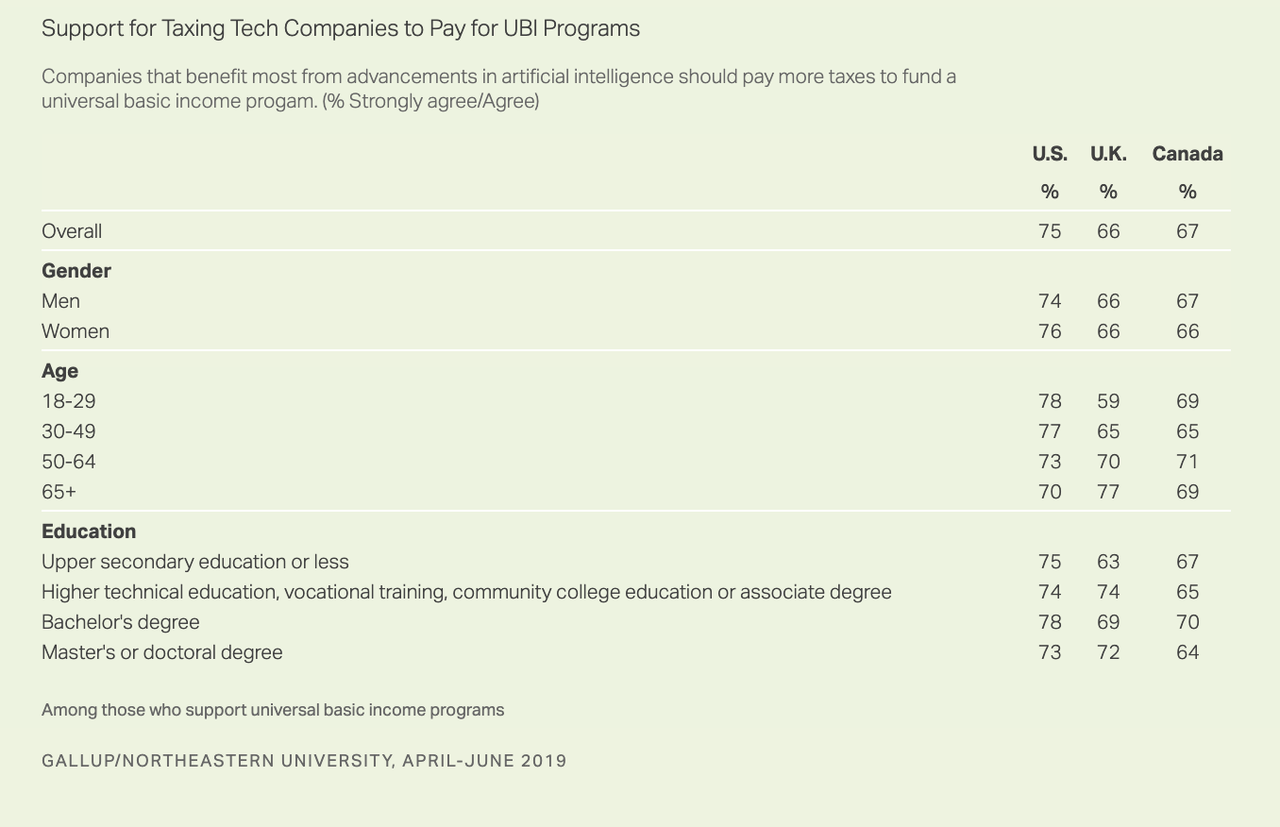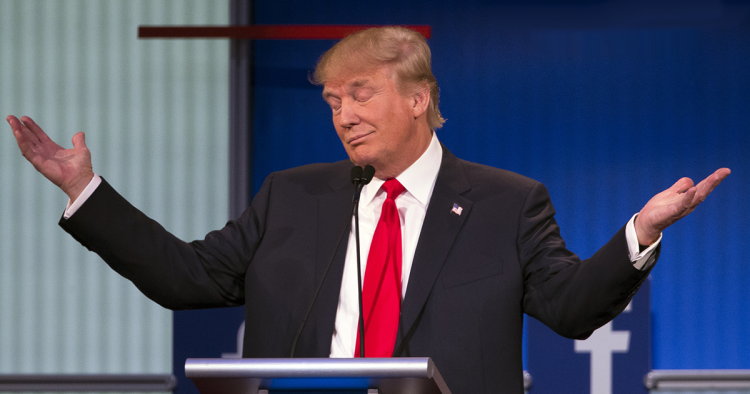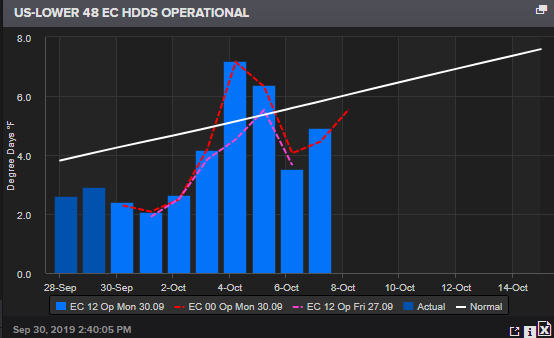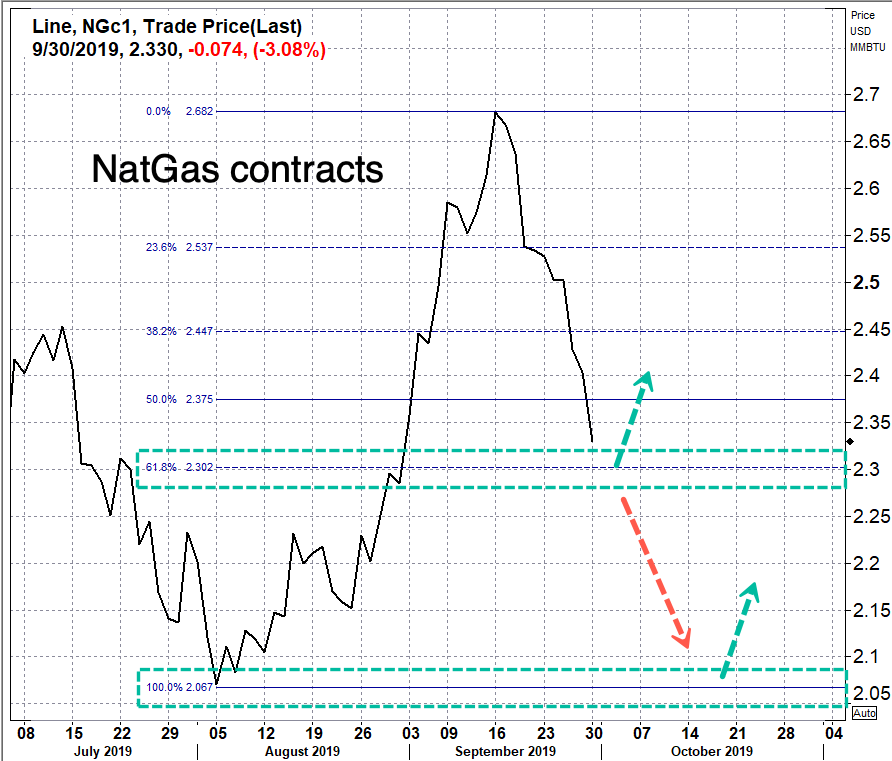Americans Reject Universal Basic Income While Canada & UK Embrace It
Authored by RJ Reinhart via Gallup
A recent survey by Gallup and Northeastern University finds a slight majority of Americans opposed to a universal basic income (UBI) program as a way to support workers displaced by AI adoption. Conversely, about three-fourths of residents in the U.K. and Canada favor the idea.
These findings come from a Gallup/Northeastern survey of over 10,000 adults in Canada, the U.K. and the U.S. conducted from April to June 2019. By some estimates, up to 50% of jobs are expected to be automated within the next decade. An OECD study across 21 countries suggests that while only 9% of jobs are currently at high risk of automation, low-skilled workers are most vulnerable to job displacement.
The way that colleges, universities, governments and businesses can respond to this disruption is the topic of a recent report by Gallup and Northeastern University detailing the results of the three-country survey. The probability-based survey was conducted online with 4,394 Americans, 3,049 Canadians and 3,208 U.K. adults.
In the survey, UBI was defined for respondents as a government-instituted program that would provide every adult with a specific amount of money each year. These funds would serve as income support for people who lose their jobs or occupations because of advances in artificial intelligence. UBI programs have been endorsed by U.S. Democratic presidential candidate Andrew Yang, as well as high-profile business leaders such as Richard Branson and Mark Zuckerberg.
Gaps in support for UBI among the three countries surveyed may be due to the tradition of more robust social safety nets in the U.K. and Canada than in the U.S. However, despite the differences in overall support, there are some similarities in age group patterns. In general, younger residents in each country are more supportive of UBI than older residents are, with at least eight in 10 young adults (aged 18 to 29) in the U.K. and Canada – and nearly six in 10 in the U.S. – supporting the idea. By contrast, support is about 15 to 30 percentage points lower in each country among those aged 65 and older.
At the same time, the patterns of support by education level differ across the three countries. In the U.S., support for UBI is higher among those with increased levels of education, ranging from 38% of those with a high school diploma or less to 54% of those with a bachelor’s degree and 51% of those with a postgraduate degree. In the U.K. and Canada, support for UBI is highest among those at the lower end of the education spectrum – 80% of U.K. adults with no more than an upper secondary school education support the program, as do 78% of Canadians with similar levels of education. Support falls to an average of 73% in the U.K. and 72% in Canada among those with a college or postgraduate degree.
Are Supporters Willing to Pay Higher Taxes for UBI?
In a follow-up question, UBI supporters were asked if they were willing to pay higher taxes to fund such a program. Support for this varies, from 75% in the U.S. to 53% in the U.K. and 49% in Canada.
Among all subgroups of UBI program supporters, those in the U.S. are more willing than those in the U.K. or Canada to pay higher taxes to fund such programs.
In each country, willingness to pay higher taxes to fund UBI programs is greater among college graduates than among those with less education. In the U.S. and Canada, there is more willingness among young adults (aged 18 to 29) than among those aged 65 and older.
Common Views That Companies Should Pay
UBI supporters in all three countries were also asked if the companies that benefit most from advancements in AI should pay more taxes to fund UBI programs. Large majorities of adults in all three countries “strongly agree” or “agree” that these companies should pay, including three-fourths in the U.S. and two-thirds in the U.K. and Canada.
Bottom Line
UBI programs have garnered substantial attention in recent months, in part because of Yang’s endorsement of them. The Democratic presidential candidate has backed such programs to help Americans who experience job loss due to the introduction of new technology. The concept has been piloted on a limited basis in several locations worldwide, with mixed results. However, this hasn’t dissuaded UBI supporters from promoting these programs as necessary tools to offset the potential disruption caused by AI adoption and other technological advancements.
These supporters may find fertile ground for the implementation of UBI programs in the U.K. and Canada. However, in the U.S., attitudes are mixed – and UBI programs are likely to be a harder sell. Even in the U.K. and Canada, opinions vary among supporters about paying higher taxes to fund such programs. UBI programs would likely be more palatable in these countries if their governments were to endorse taxing tech companies to cover the bill.
In all three countries, views on UBI programs could change as the effects of AI adoption become increasingly disruptive to workers.
Tyler Durden
Mon, 09/30/2019 – 17:45
via ZeroHedge News https://ift.tt/2oLMxlH Tyler Durden
